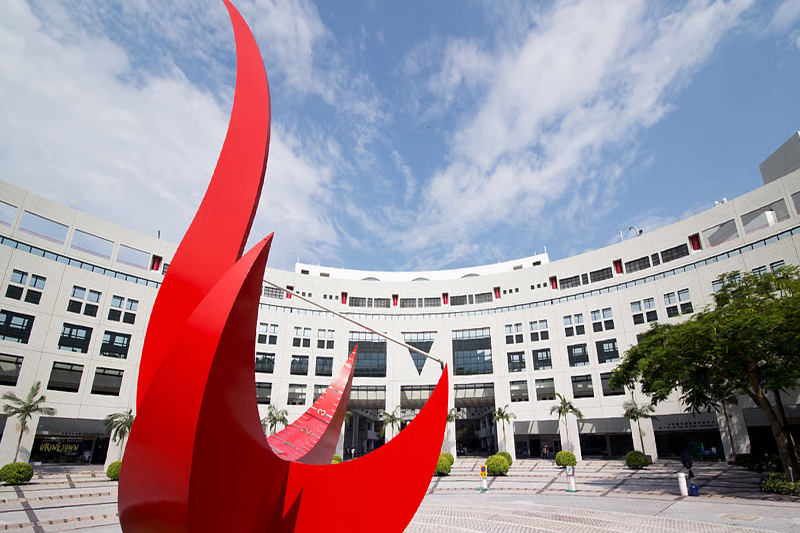
As US Education Stumbles, Hong Kong Emerges as a Rising Global Academic Hub
As the reliability and appeal of the US higher education system continue to decline amid policy uncertainty, political interference, and fluctuating immigration laws, students worldwide are seeking new, more stable academic destinations. Quietly but strategically, Hong Kong has stepped in to fill this emerging gap—repositioning itself as a global magnet for students and scholars alike.
From Regional to Global: Hong Kong’s Expanding Academic Reach
Traditionally reliant on students from mainland China, Hong Kong’s universities are seeing a significant increase in international applications from the United States, Europe, Africa, Australia, and Latin America. This trend, reported by Times Higher Education (THE), reflects a deliberate transformation in the region’s academic outlook that embraces global diversity and innovation.
This shift marks a turning point. Where once Hong Kong catered primarily to regional academic interests, it now signals its intent to become a formidable global player in higher education. The growing number of applications from outside Asia underscores this evolution.
Policy Reforms Driving the Boom
A series of progressive policy reforms is at the heart of Hong Kong’s educational rise. In 2023, the government raised the cap on non-local students from 20% to 40%, dramatically increasing the intake capacity for international students across universities.
This single policy change opened the gates to a broader global talent pool. Complemented by simplified visa regulations for researchers and academic staff and a more unified approach to international student recruitment, Hong Kong has effectively dismantled the bureaucratic hurdles that once slowed its progress.
According to the THE report, institutions like The Hang Seng University of Hong Kong have already seen a 50–60% spike in international student applications in the last two to three years. What’s more, there has also been a noticeable surge in applications from international faculty, further strengthening the city’s academic ecosystem.
HKUST at the Forefront of Global Outreach
One of the standout examples of this international pivot is the Hong Kong University of Science and Technology (HKUST). Ranked among the region’s top institutions, HKUST is now home to students from over 80 countries, with nearly half of its international student body coming from beyond mainland China.
This significant diversification points to a broader change in perception. Students and faculty are drawn to Hong Kong’s academic rigour and its proximity to the Greater Bay Area—a hub for cutting-edge research, innovation, and tech-driven careers.
HKUST’s adaptability in the current global climate is particularly noteworthy. Amid growing unrest and institutional uncertainty in the US, the university extended offers to high-performing students from elite American institutions, including Harvard. Reports suggest that HKUST received hundreds of inquiries and issued dozens of offers, underlining how quickly students reevaluate their academic trajectories.
From Attraction to Retention: The Next Big Challenge
While attracting international students is a significant achievement, Hong Kong’s long-term success will depend on its ability to retain this global talent. Education leaders and policy experts stress that a sustainable academic future requires more than open doors—it requires a whole ecosystem of support.
This includes pathways for international graduates to find employment, access to research opportunities, government and industry collaboration, and meaningful avenues for cultural and social integration. Without these elements, universities risk becoming stepping stones rather than long-term destinations.
Experts cited by THE argue that this task extends beyond universities. It demands a concerted effort from government agencies, private sector partners, and civic institutions to create a vibrant, inclusive, and opportunity-rich environment for international talent.
Overcoming Past Perceptions
Hong Kong’s growing academic reputation hasn’t come without challenges. In the wake of the 2019 protests, concerns around academic freedom and political autonomy led many to question the region’s viability as a higher education hub.
However, recent developments indicate a shift in this narrative. Instead of remaining in the shadows of political skepticism, Hong Kong is focusing on pragmatic, research-led strategies to boost its global standing. Its commitment to internationalisation, research funding, and policy clarity now contrasts sharply with the instability seen in several traditional education destinations.
Conclusion: A Quiet Power Shift in Global Education
In today’s volatile academic landscape, where geopolitical tensions, visa hurdles, and institutional politics are reshaping the choices of students and scholars, Hong Kong has emerged as a compelling alternative. By capitalising on the uncertainties in US education and offering a structured, opportunity-rich, and forward-looking environment, the city is building a new academic identity—one that is rooted in global outreach, policy reform, and long-term vision.
The numbers speak for themselves: more applications, broader demographics, increased faculty interest, and growing institutional confidence. Whether Hong Kong can maintain this momentum will depend on its ability to convert its current appeal into lasting global influence.
However, one thing is clear: the global classroom is shifting eastward, and Hong Kong is not just adapting to this change; it’s leading it.



